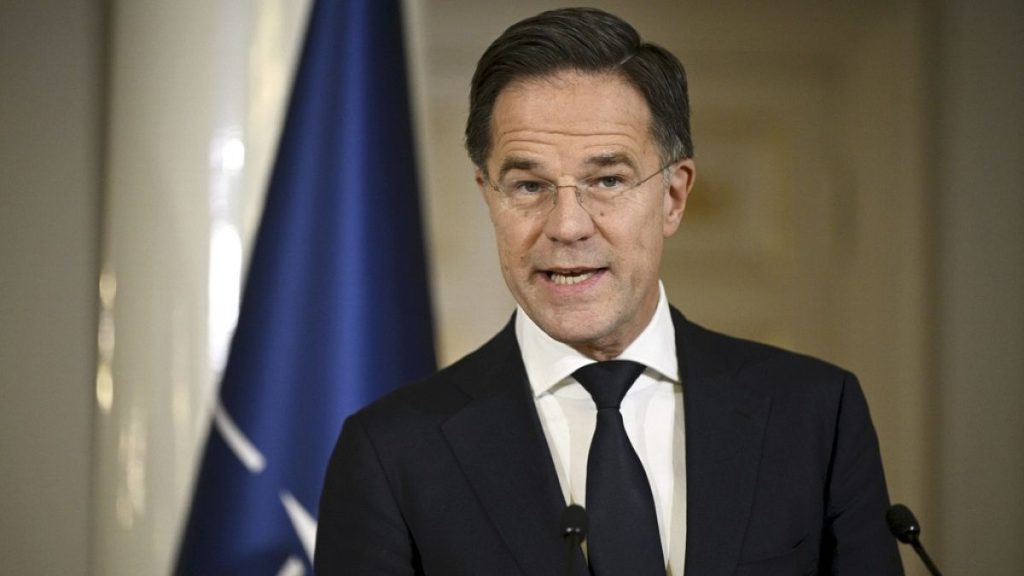NATO Secretary General Jens Stoltenberg’s stark warning about the alliance’s preparedness for escalating security threats, particularly from Russia, underscores a critical juncture in international relations. His call for a “wartime mindset” is not a declaration of war but a recognition of the evolving security landscape and the need for NATO members to adapt swiftly and decisively. Stoltenberg’s assertion that the alliance is “not ready” for the challenges ahead highlights a perceived gap between current capabilities and the potential threats posed by a resurgent and increasingly assertive Russia. This perceived vulnerability stems from several factors, including Russia’s demonstrated willingness to use military force, its investment in modernizing its armed forces, and its engagement in hybrid warfare tactics, ranging from cyberattacks and disinformation campaigns to political interference. The Secretary General’s emphasis on the need for increased defense spending and enhanced defense production capabilities reflects the urgency of bridging this capability gap and ensuring that NATO possesses the necessary resources and capabilities to deter aggression and defend its member states.
Stoltenberg’s assessment of the security environment as the most perilous of his lifetime underscores the gravity of the situation. Russia’s ongoing war in Ukraine serves as a stark reminder of the potential for conflict in Europe and the devastating consequences that can ensue. The Secretary General’s characterization of Russia’s actions as preparation for a “long-term confrontation” with both Ukraine and NATO suggests that the current conflict is not an isolated incident but rather part of a broader strategic challenge. This long-term perspective necessitates a shift in thinking within NATO, moving away from a reactive posture to a more proactive and forward-leaning approach that prioritizes deterrence, resilience, and the ability to respond effectively to a wide range of potential threats. The call for a “wartime mindset” is not about embracing militarism, but rather about recognizing the need for a sense of urgency, enhanced preparedness, and a commitment to collective defense in the face of a growing threat.
The timing of Stoltenberg’s remarks, shortly before a major NATO summit, highlights the importance of addressing these concerns collectively and developing a unified response. The summit provides an opportunity for member states to reaffirm their commitment to the alliance, to address the Secretary General’s concerns about preparedness, and to formulate concrete plans for strengthening NATO’s collective defense capabilities. The emphasis on increased defense spending is likely to be a key topic of discussion, with Stoltenberg urging member states to “turbocharge” their investments in defense. This call for increased spending is not merely about allocating more resources but also about ensuring that those resources are used effectively to develop the capabilities most needed to address the evolving security challenges. This includes investments in new technologies, enhanced cyber defenses, and improved interoperability among NATO forces.
Beyond the conventional military domain, Stoltenberg also highlighted the multifaceted nature of the security threats facing NATO, emphasizing the increasing prevalence of hybrid tactics employed by Russia and other actors. Cyberattacks, disinformation campaigns, and attempts to undermine democratic institutions pose a significant challenge to the security and stability of NATO member states. These tactics are often designed to sow discord, erode public trust, and weaken the cohesion of the alliance. Addressing these hybrid threats requires a comprehensive approach that encompasses not only military capabilities but also diplomatic, economic, and informational tools. NATO must enhance its ability to detect and counter these activities, to protect critical infrastructure, and to build resilience within its member states against disinformation and other forms of manipulation.
The Secretary General’s emphasis on Russia’s partnerships with China, North Korea, and Iran underscores the increasingly complex geopolitical landscape. These partnerships represent a convergence of interests among states seeking to challenge the existing international order and undermine the influence of the West. This convergence of authoritarian powers poses a significant challenge to NATO, requiring the alliance to adapt its strategies and capabilities to address a broader range of potential adversaries. The alliance must strengthen its partnerships with democratic nations around the world and work to build a more robust and resilient international system capable of resisting the pressures exerted by these revisionist powers.
Finally, Stoltenberg’s unwavering support for Ukraine highlights the importance of NATO’s commitment to assisting Kyiv in resisting Russian aggression. Providing Ukraine with the necessary military and economic assistance to defend itself is not only a moral imperative but also a strategic necessity. A successful defense of Ukraine is essential for deterring further Russian aggression and for maintaining the credibility of NATO’s commitment to collective defense. The Secretary General’s call for a “wartime mindset” reflects the recognition that the current security environment demands a heightened sense of urgency, a commitment to shared sacrifice, and a willingness to take decisive action to defend the values and principles upon which NATO was founded. The alliance must demonstrate its resolve to stand united against aggression and to uphold the rules-based international order.














